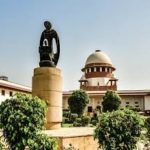Appeal related to dowry death. The appeals, brought by the deceased’s brother, challenge the Allahabad High Court’s decision to grant bail to five individuals accused of dowry-related harassment and murder. The Supreme Court reviewed the gravity of the offense, the evidence of strangulation and injuries, and the persistent dowry demands. Ultimately, the court cancelled the bail for the father-in-law and mother-in-law due to their direct involvement, while upholding the bail for the two sisters-in-law, citing their less direct role and personal circumstances. The court also expressed concern over the High Court’s “mechanical approach” to granting bail in such serious cases, emphasizing the need for stricter scrutiny in dowry death matters.
Criminal Procedure Cod3, 1973, Section 439 – Dowry death – Bail – Challenge as to by complainant – Offences punishable under Sections 498A and 304B IPC along with Sections 3 and 4 of the Dowry Prohibition Act, 1961 – Deceased had married accused no. 1 on 07.02.2022 and had died under highly suspicious circumstances on 22.01.2024, well within the seven-year window that invokes Section 304B of IPC – Her body was bearing multiple ante-mortem injuries and a pronounced ligature mark signifying strangulation – A closer look at the post-mortem details reveals traumatic contusions on the head and neck, indicating severe physical violence prior to her demise – When such brutality is combined with a clear pattern of dowry demands, including a “Bullet” motorcycle initially and later a car, the possibility of a dowry-related killing becomes alarmingly evident – Accused No.2 (father-in-law) and Accused No.3 (mother-in-law) had a principal role in pressurising the deceased with repeated demands for expensive items and subjecting her to relentless cruelty.
Held that Accused No.2 and Accused No.3 do not deserve the continued protection of bail – The gravity of the allegations, ranging from demands for costly gifts to the infliction of brutal injuries, demonstrates a strong prima facie case against them – Consequently, their bail warrants cancellation so that a fair and unimpeded trial may take place, in keeping with the legislative intent behind anti- dowry laws.
Accused No.4 and Accused No.5 are both sisters-in-law of the deceased – Material on record does implicate them, but their role appears relatively less direct – Accused No.4 has recently got married (in November 2024) and begun her new life, while the other (Accused No.5) is quite young, pursuing her education in Bachelor of Arts degree and simultaneously employed as a teacher in a private school – Although do not exonerate them from the allegations at this stage, find it appropriate to extend a measure of leniency towards them by not interfering with the bail granted – This consideration stems solely from their personal and educational circumstances and should not be construed as a reflection on the merits of the allegations against them – Bail granted to Accused No.2 (father-in-law) and Accused No.3 (mother-in-law) liable to be cancelled – The bail granted to Accused No.4) and Accused No.5 upheld.
(Para 11 to 14, 17 and 18)
Shabeen Ahmad V. State Of Uttar Pradesh
Supreme Court: 2025 INSC 307: (DoJ 03-03-2025)






